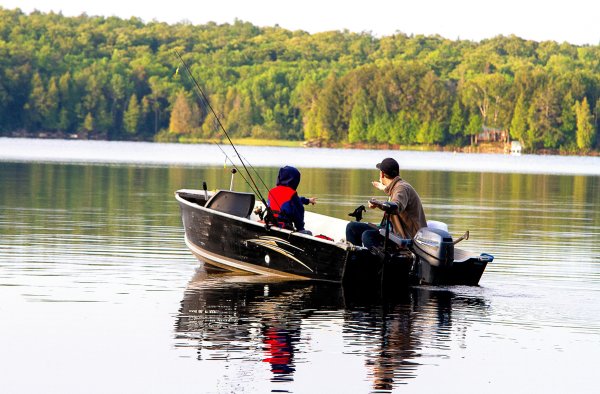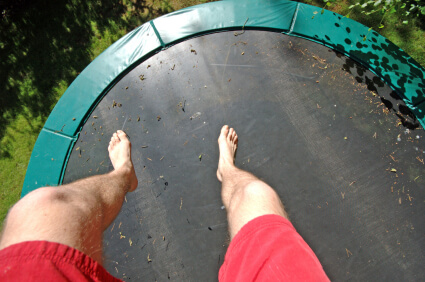Fishing season is finally here. As lines eagerly begin to fly from the boats and shorelines of southeast Michigan, safety is unlikely to be the first thing on the mind of most anglers.
For many Michiganders, time on the water is relaxing, meditative, exhilarating, and grounding all at once. It combines precision, patience, skill, and luck in a way that’s irresistible—especially to those living near our state’s beautiful lakes, rivers, and ponds.
While fishing allows anglers to connect with nature in a way that few other activities can, it also comes with risks that can quickly turn a peaceful day into a painful one. Here are a few safety considerations to keep in mind for your next day out on the water.
Fish Hook Injuries
The first (and probably most obvious) safety concern involves the most essential fishing tool – the hook. While net fishing is common, fishing with a rod and reel remains the most popular and accessible form of recreational fishing—especially among novice and intermediate anglers.
Fishing is one of the only activities where absolute beginners are not only encouraged, but are required to hurl sharp metal objects through the air. A common injury amongst fishermen involves getting accidentally hooked, then having that hook ripped away forcefully. This can lead to all sorts of nasty soft-tissue injuries, including avulsions, lacerations, and even deglovings. While it may make your skin crawl to think about such injuries, they do happen, and it’s best to have a gameplan together if you end up being the one hooked on your next fishing outing.
If you are unfortunate enough to get hooked, remain calm. Oftentimes panicking and trying to quickly remove an inserted fishing hook can lead to worse injuries. Calmly assessing the part of the body where the hook is inserted is always best practice. In most situations, you should err on the side of caution and receive medical attention to help remove a hook – especially for sensitive areas.
If the barb of the hook is not fully inserted into the skin, there is a possibility you can remove the hook yourself without medical attention. Knowing a few basic hook removal techniques can save you some grief (and potentially an ER trip) if you ever find yourself hooked while on the water.
Slip and Falls
Fishing can be a slippery slope in more ways than one. Between the rods, reels, lures and line available for purchase, it is very easy to slip into a fishing addiction. Similarly nothing can replicate the joy of finally landing a big slippery wet fish in your hands after a long day’s effort. However, the kind of slip relevant to this blog post is the kind that ends with you on your butt (and maybe even in the hospital).
Slip and falls are extremely common while fishing. Whether on a slick dock, algae covered rock, or on the deck of your pride and joy fishing boat, slip and falls can happen to anyone, anywhere, and anytime.
While you can’t rewind time once a slip and fall happens, you can take measures to reduce the likelihood of a slip and fall from ever occurring.
For starters, picking appropriate fishing shoes is a must. Although sandals are a comfortable pick for hot weather, closed toe shoes provide better grip, stability, and toe protection – all relevant factors when fishing. While a solid pair of grippy tennis shoes is typically sufficient for fishing, they do make fishing specific shoes which are often perfect for fishing applications.
Consider a pair of fish-oriented footwear for your next outing to help safeguard against potential slip and falls.
In a similar vein, applying grip tape to high traffic areas of your dock or fishing boat deck is a great way to prevent slips before they happen. Grip tape can help add traction to areas that frequently get wet and can also serve as a useful visual indicator to watch your step and be mindful by the water.
Fish Handling Injuries
Handling fish properly is an important aspect of fishing. Not only for the health and safety of the fish being handled, but for your own health and safety.
If you find yourself with a fish on your line, be conscious of where you hold the fish from once you get it out of the water. Fish often jerk around and their fins can be as sharp as knives. Be careful not to anxiously grab a fish by its fins and get stabbed in the hand by a spine. Similarly, some fish have sharp teeth that can inflict painful injuries if not handled with care. Knowing what fish is on your line can be very helpful for safe handling.
If you are unsure of what you caught and no one is around to help you identify your catch, there are some really clever 21st century ways to figure out just what you’ve got on your line. By quickly snapping a picture of whatever fish you caught and showing it to an AI chatbot like Chat GPT (or something similar), you can get a quick and generally reliable species identification in the field, during your next outing.
One final tip with regard to handing fish – how to safely remove hooks. While it is typically possible to remove hooks from fish by hand, sometimes it may be tough to do so. In these situations – like when a fish is hooked deep in the back of its mouth – it may be handy to have a pair of fishing specific pliers with you. This can save your hands from accidentally getting poked during tricky hook removals, and also potentially save a fish’s life.
Get David Get Paid
The team at Femminineo Law has extensive experience dealing with fishing and boating injuries. If you need help dealing with a fishy situation after a personal injury, make sure you get Femminineo Law on your case.
Give us a call today (855-65-CRASH), or visit our website at www.getdavidgetpaid.com.
Get David Get Paid.



